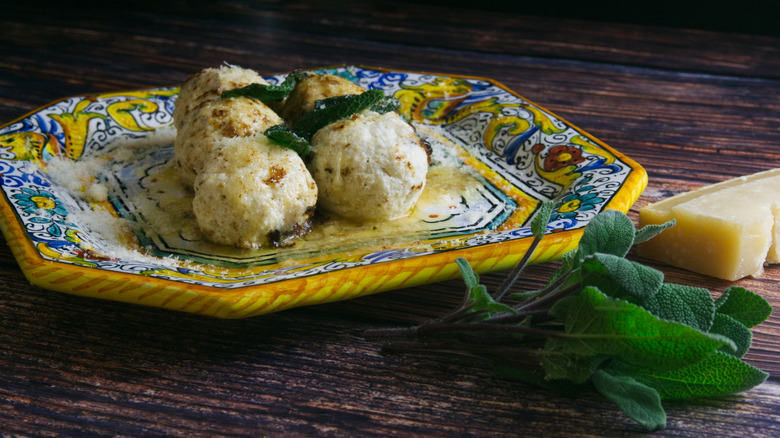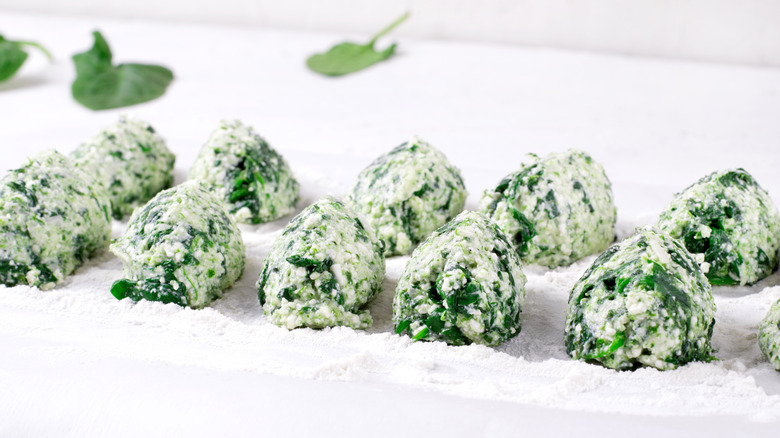The Extra Step To Take For Firmer Gnudi
How delicious are gnocchi, the plump, pillowy pasta shapes said to have originated in northern Italy? According to Saveur, the simmered dumplings have been around since at least the Renaissance. Early versions were made from bread, milk, and ground almonds, as well as a simple flour, water, and breadcrumb dough that was grated on a cheese grater to produce individual shapes.
Over the centuries, of course, gnocchi has taken on many forms, such as those made with seasonal ingredients like chestnuts and pumpkin, to the famous flour-and-potato type. Commonly served with pesto, cream sauces, and brown butter with sage, the ways one can enjoy gnocchi seem almost endless — especially when you consider that both malfatti and gnudi are, essentially, cousins of this delicious dumpling. That first term, malfatti, refers to rustic spinach and ricotta dumplings, according to Bon Appétit, while gnudi are basically little rounds of poached ricotta cheese.
Don't forget to chill your gnudi before simmering them
According to Kitchn, "gnudi" means "naked" in Italian, and makes reference to the fact that these pillowy cousins to gnocchi are basically akin to ricotta ravioli without the pasta wrapper — naked, if you will. Made from whole milk ricotta and plenty of grated parmesan that's bound with eggs and just enough flour to keep everything together, gnudi are the perfect dish for those who love dairy — and for those who want to make pasta at home without going through the hassle of kneading, resting, and rolling pasta dough.
Gnudi is very simple to prepare, according to the outlet, but because its dough includes only a small amount of flour in order to produce a feather-light texture, it's important to ensure the gnudi will stay together in the simmering, salted water. In order to do so, an essential step is mixing and forming the gnudi, then refrigerating the cookie scooped dough for at least 20 minutes, while you boil the water and warm up some homemade or store-bought sauce. Doing so helps the dumplings firm up, reducing the risk that they'll fall apart as they cook. So the next time gnudi are on the menu, make sure you've got some space in your refrigerator for them.

